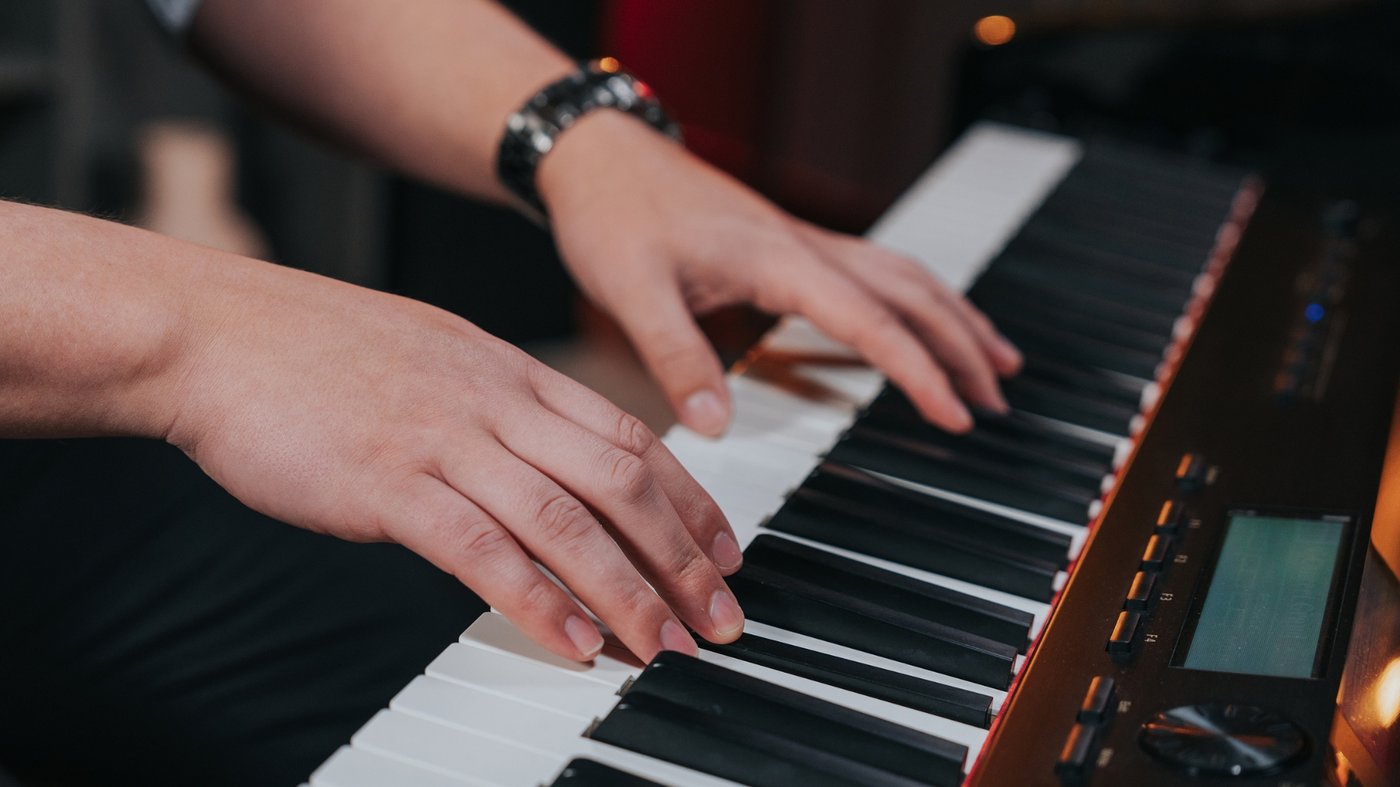
“How long does it take to learn piano?” is a question our team hears a lot as music educators. The correct answer is “it depends”—after all, progress depends on previous experience, learning method, practice habits, and other factors.
But I wasn’t satisfied with “it depends.” So, I asked piano players this very question. I wanted to know how long it takes—and what it takes—to get to the level they are at now.
I surveyed more than 1000 piano players. Here’s what they said.
Table of Contents:
Subscribe to The Note for exclusive interviews, fascinating articles, and inspiring lessons delivered straight to your inbox. Unsubscribe at any time.
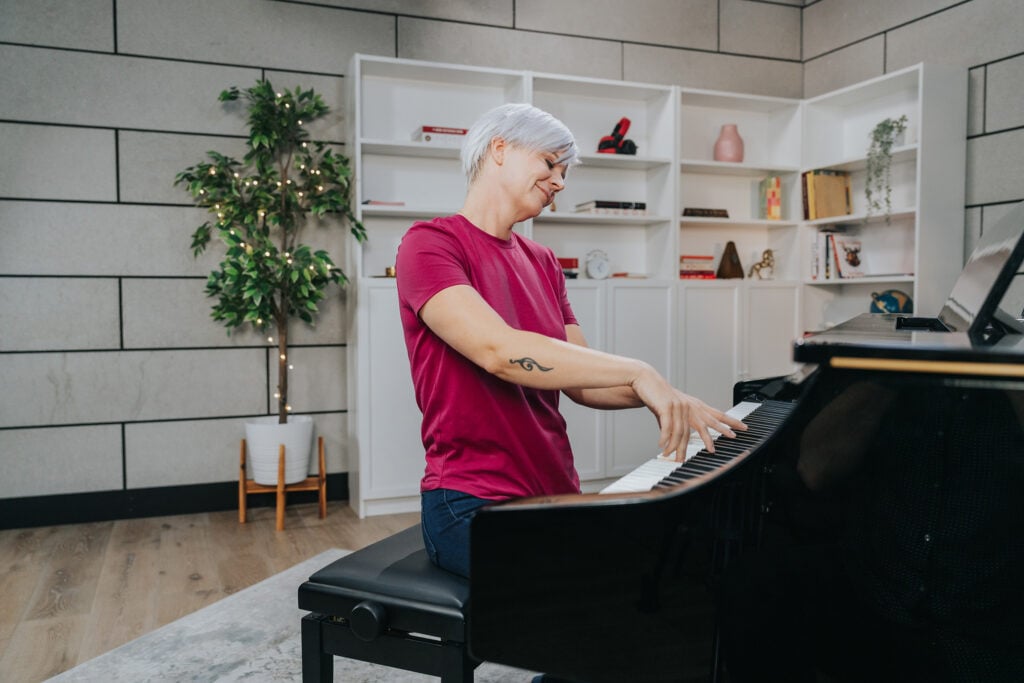
It takes about 4-5 years to become an intermediate piano player.
41% of intermediate pianists have been playing for 1-3 years. 33.5% have been playing for 4-10 years. Knowing this, if I was starting piano today, I would budget around 5 years to reach an intermediate level of piano.
More than half of intermediate pianists learned as adults.
That’s proof it’s never too late to learn! 82% of novice players, 56% of intermediate players, and 27% of advanced and expert piano players learned primarily as adults.
Frequent + short sessions are key.
Most advanced and expert pianists practice every day (53%) or five to six times a week (24%). But most of them only practice 45-90 minutes per session (36%) or 15-45 minutes per session (29%).
Lots of people are teaching themselves.
57% of beginners, 48% of novices, and 35% of intermediate pianists self-teach using books and online resources. Having a private teacher was also popular, followed by online membership courses like Pianote, Tonebase, Open Studio, or Piano With Jonny.
Interestingly, gamified methods (such as Flowkey and Simply Piano) were the least popular learning method among every ability level we surveyed.
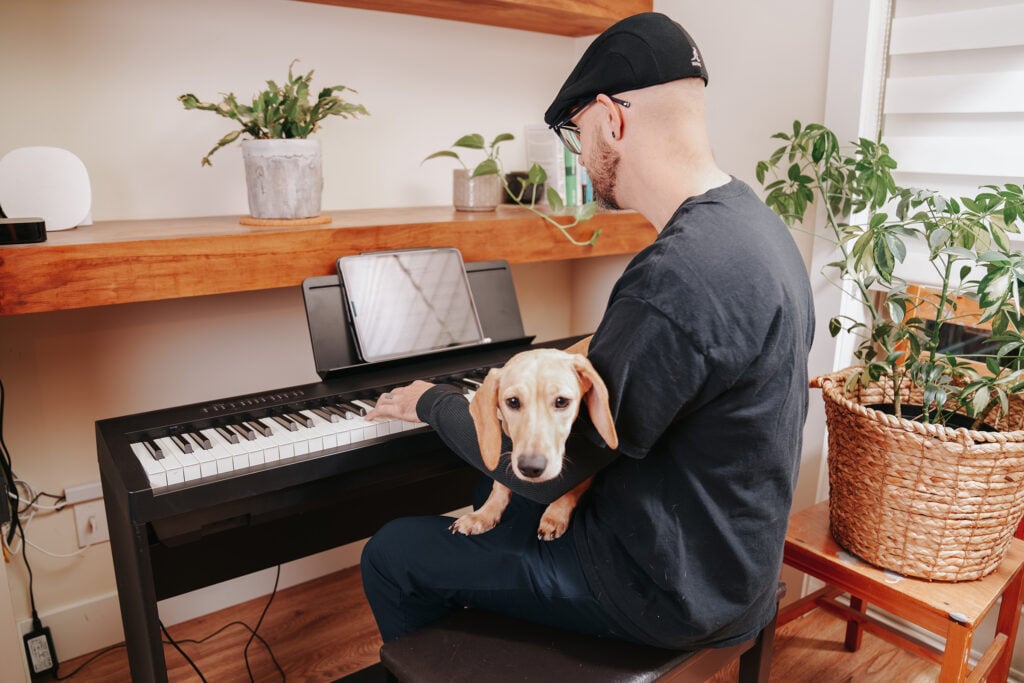
Here are the questions we asked:
The survey is now closed, but you can still read all the questions and answer choices here.
Here’s how we defined ability levels in our survey:
1159 people responded to our survey. Most people who responded were novice and intermediate piano players.
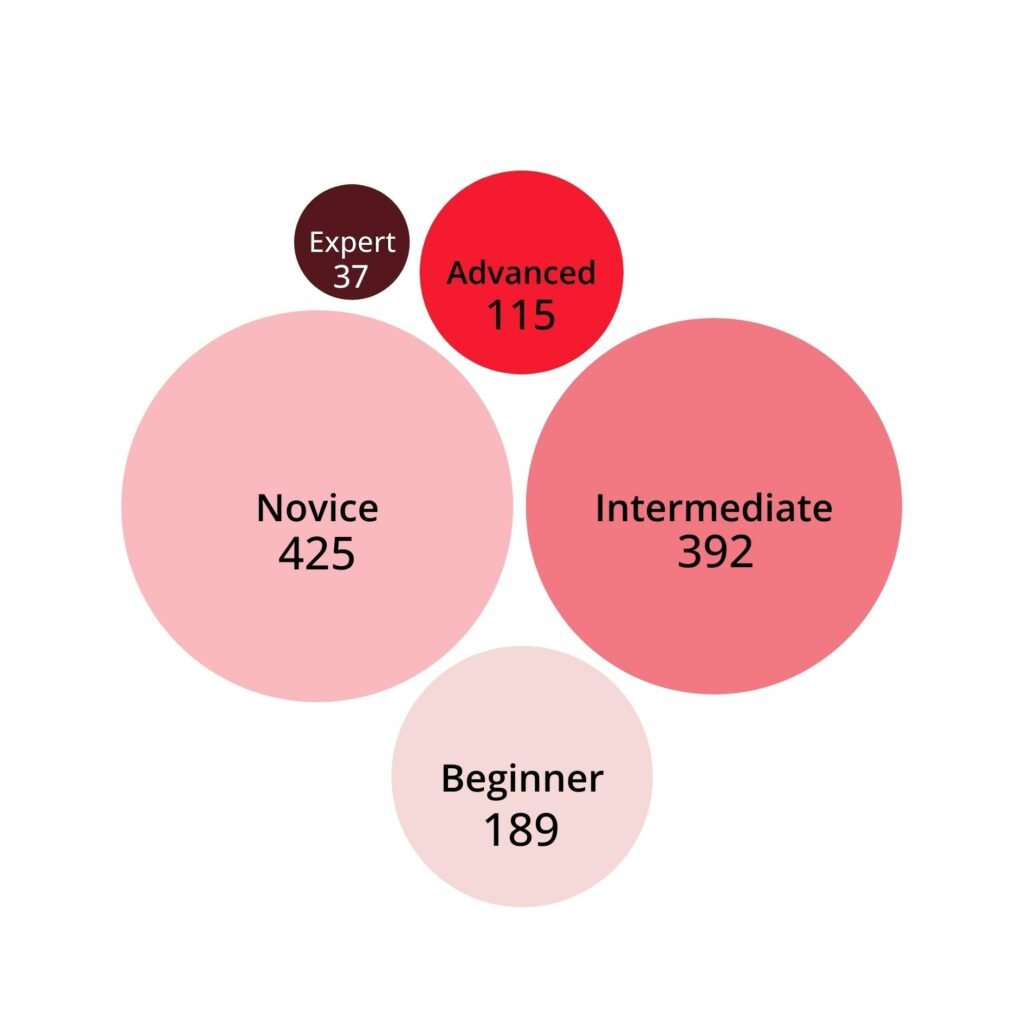
I decided to combine advanced and expert piano players into one demographic. (You can skip to findings about them here).
I will also focus on intermediate players (read about them here). Becoming an intermediate player is an attainable goal that unlocks many fun songs, so I imagine many beginners want to get to this level.
Here’s a breakdown of the genres respondents played:
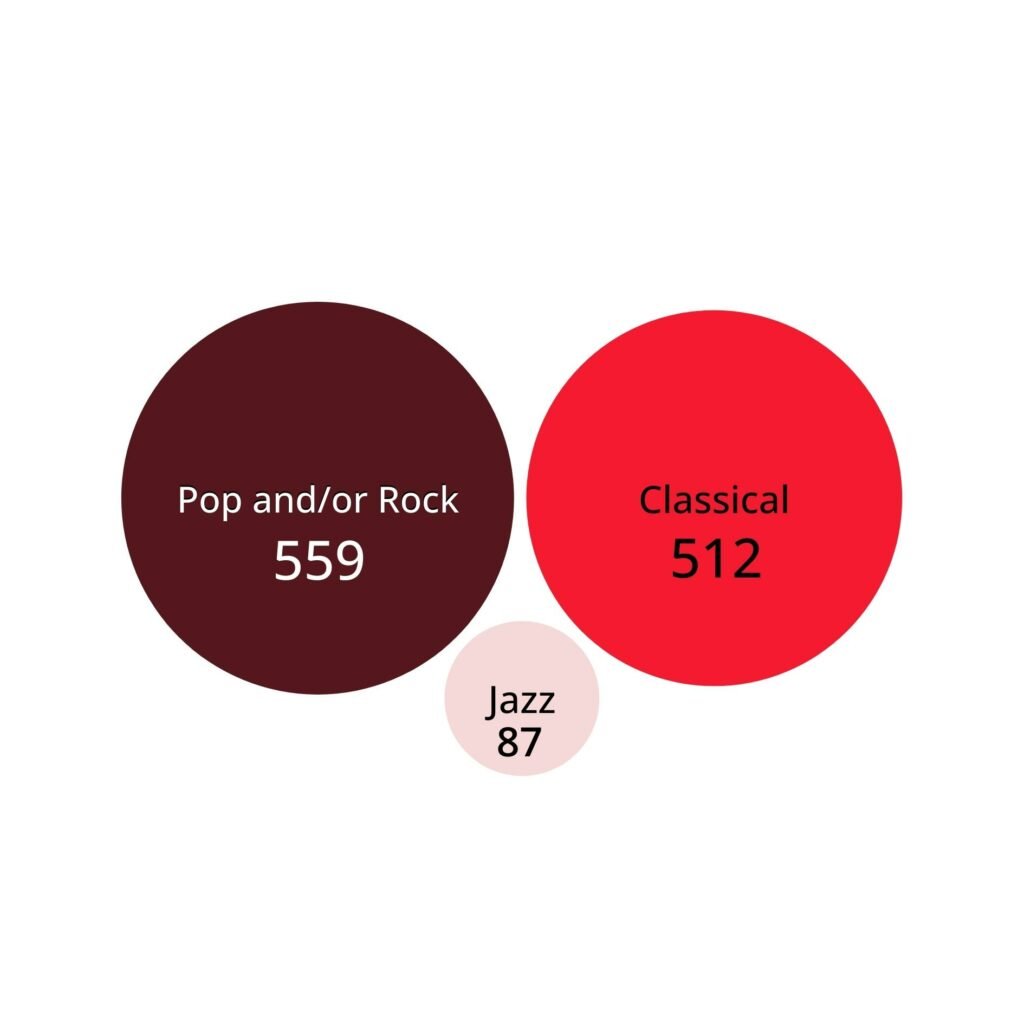
We’ll dive into the differences between advanced and expert pop/rock and classical pianists.
Please note that this survey should not be considered a scientific research paper. Some things to keep in mind:
Despite these flaws, our hope is that this survey gives readers helpful insight into the practice habits of their peers and the pros!
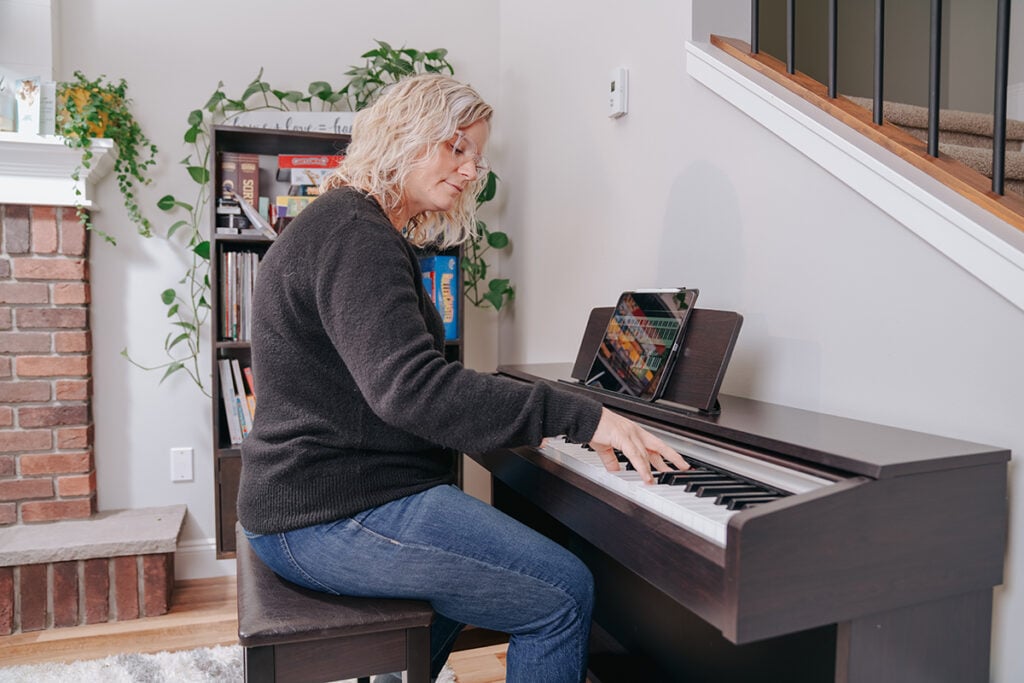
In our survey, we defined intermediate pianists as those who can play well enough that when others see them, they think, “That’s a pianist.” If you’re an intermediate player, chances are you can play your favorite pop songs with ease. You may also be able to play iconic piano hits like “River Flows In You” and “Für Elise.”
This is a great stage to be in, one where a lot of piano repertoire becomes accessible. And it’s a very attainable goal, even for adult learners! So let’s see what it takes to get here.
Age of Learning: Adult learners, you’re in good company! 56% of intermediate pianists started piano as an adult.
56%
of intermediate pianists learned mainly as adults.
44%
of intermediate pianists learned mainly as children.
Learning Method: Most (52%) intermediate pianists learn with a teacher. Other learning methods include:
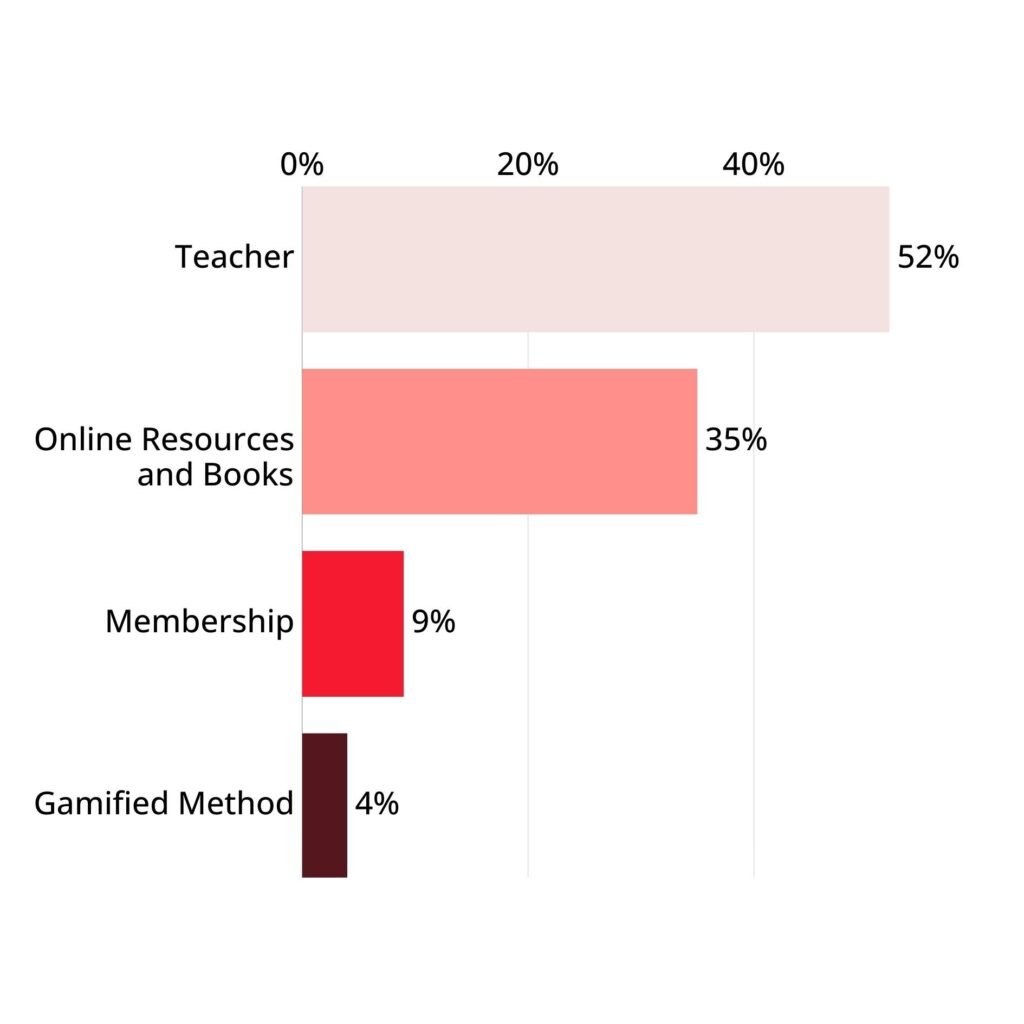
Music Experience: Interestingly, more than half of intermediate players have previous experience playing another musical instrument.
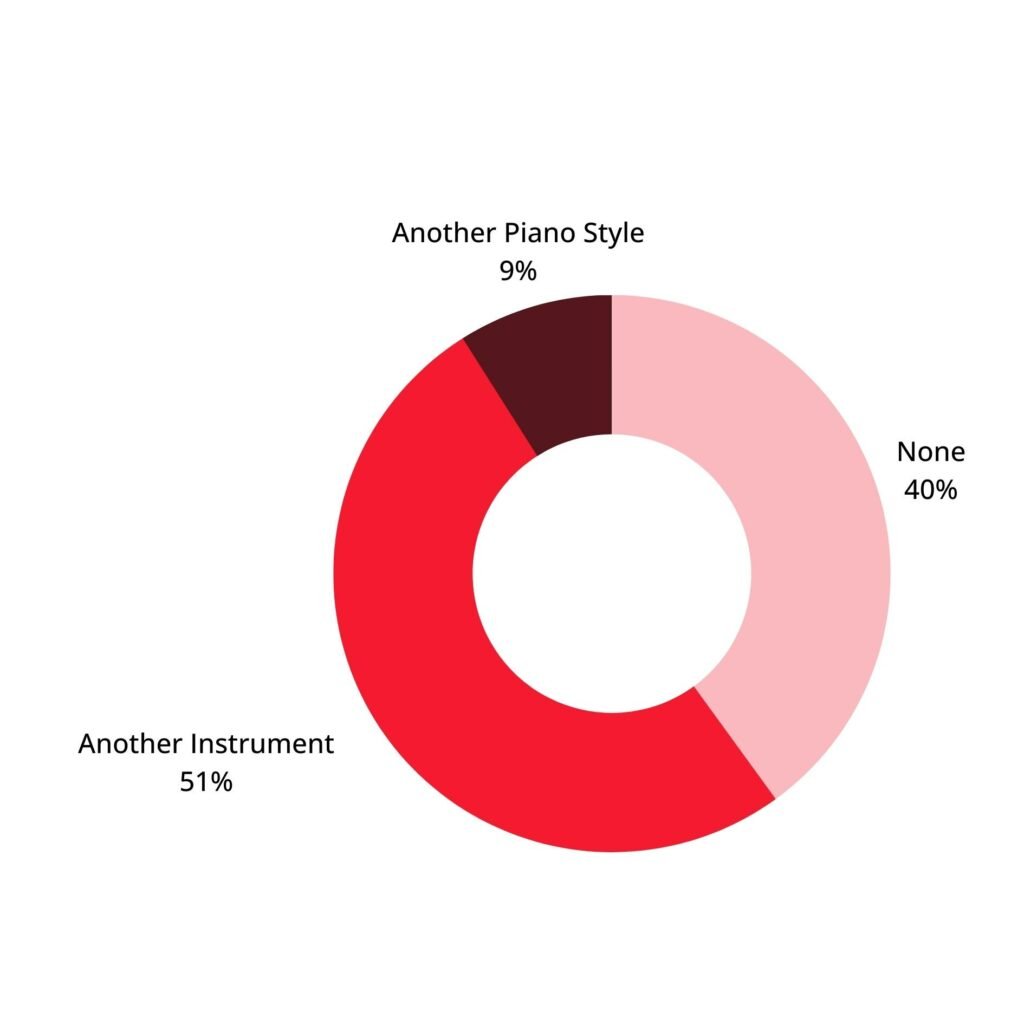
Years of Experience: Most intermediate pianists have been playing for 1-3 years (41%) or 4-10 years (34%).
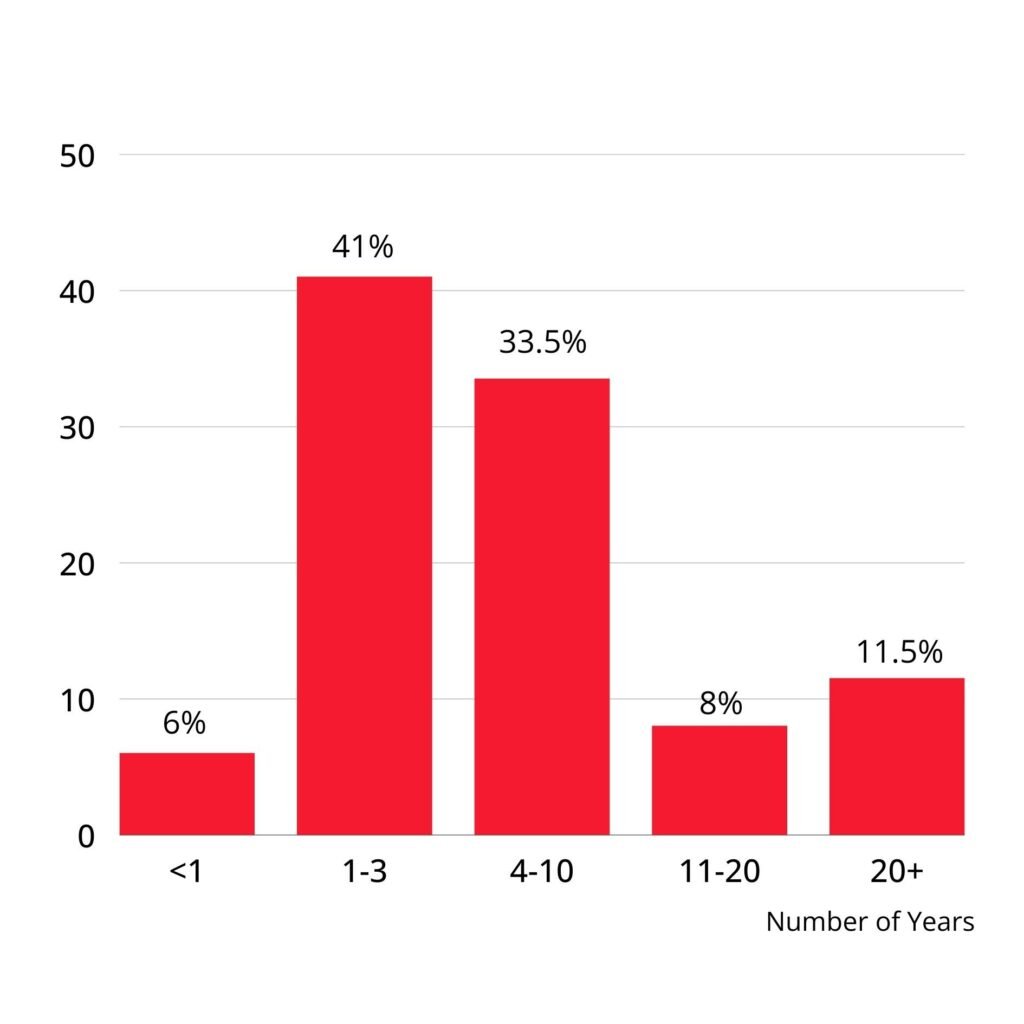
Practice Frequency: About two-thirds of intermediate pianists practice most days of the week, with 35% of intermediate players practicing every day.
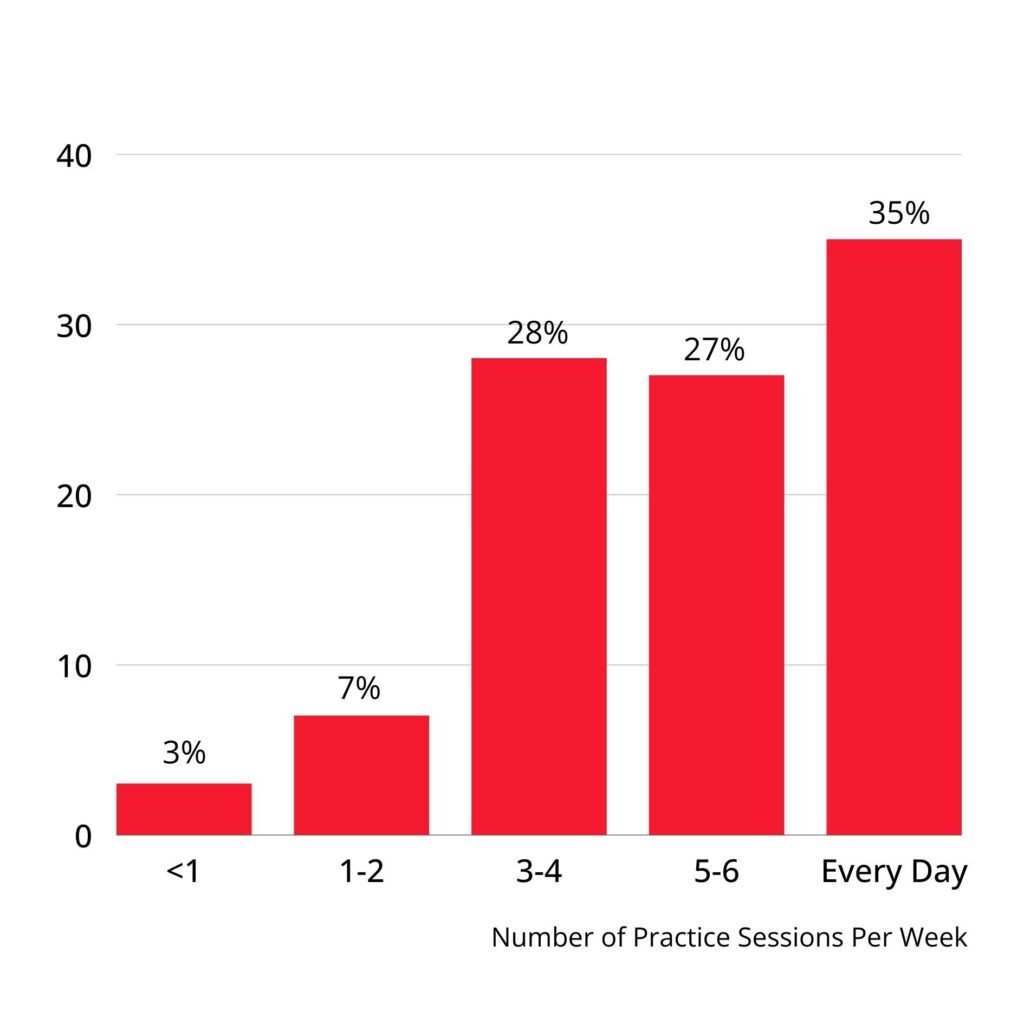
Practice Session Length: Nearly half of intermediate pianists practice just 15-45 minutes a day. 37.5% practice 45-90 minutes a day.
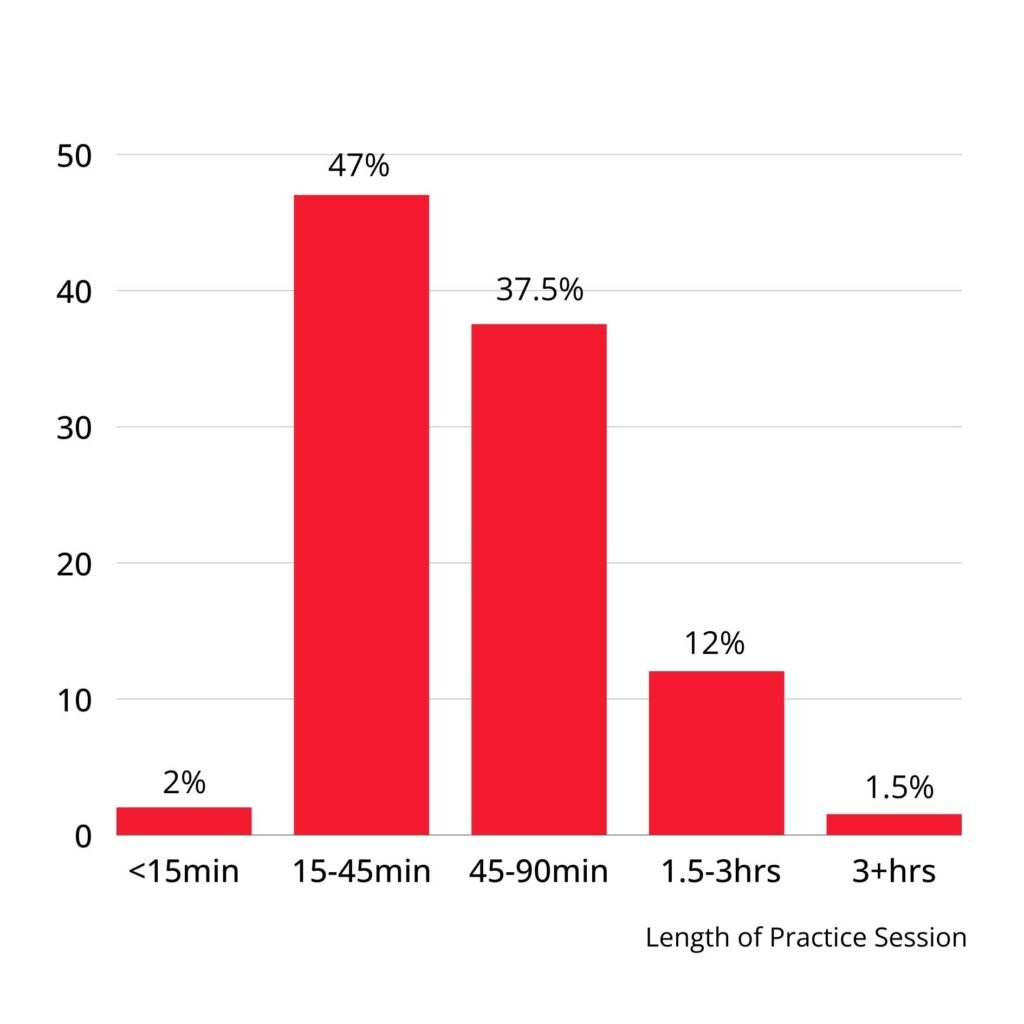
Practice Areas: Songs were voted as the most helpful practice area, followed by technique, theory, listening to music, and transcribing.
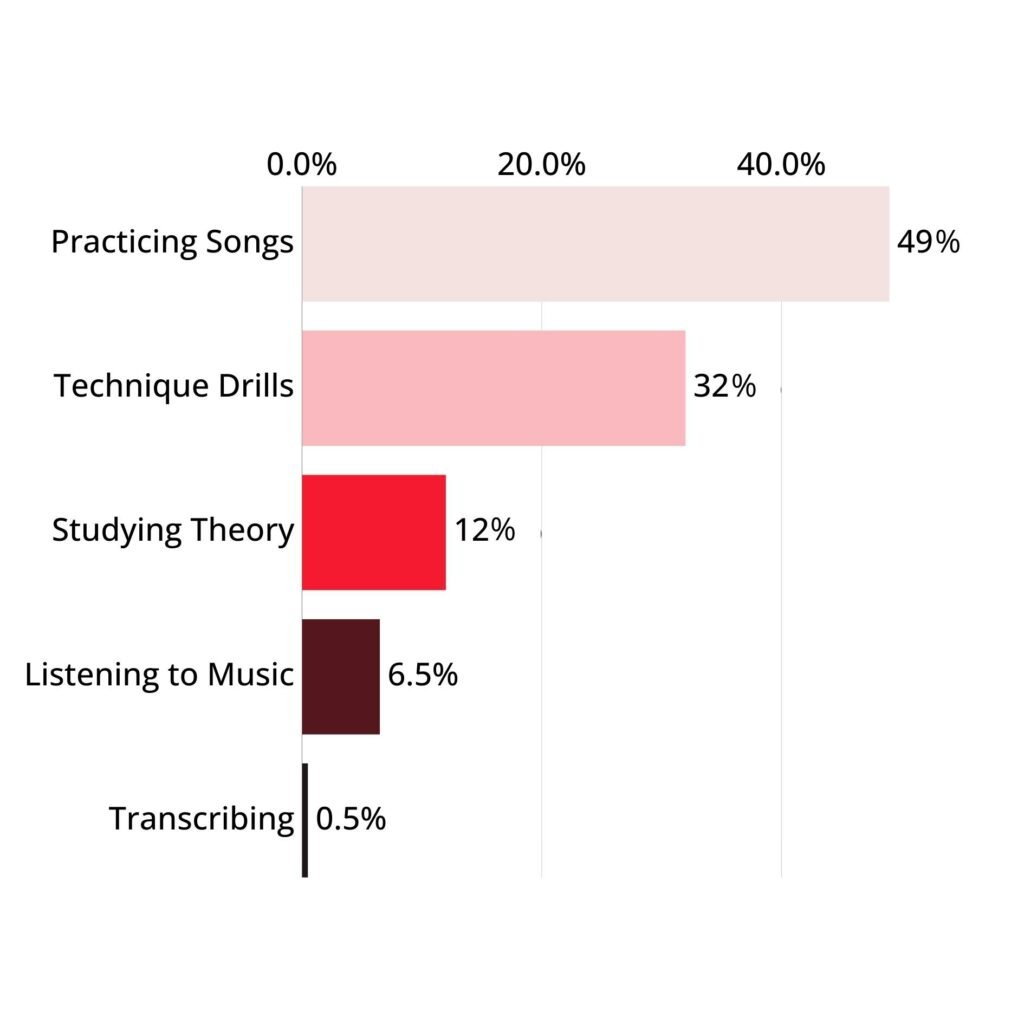
Do take this question’s answers with a grain of salt, though. These practice areas may just be most enjoyable because, let’s face it, playing songs is more fun than drilling scales!
As you can see, intermediate pianists don’t practice a crazy amount, but they do practice consistently and for a decent chunk of time. I estimate that the average intermediate player practices 30 minutes to one hour most days of the week.
One thing to keep in mind: a substantial portion (34%) of our intermediate respondents previously played another instrument at an intermediate level or higher, and 17% played another instrument at a novice level or lower. This may account for shorter practice sessions or fewer years of experience among some players.
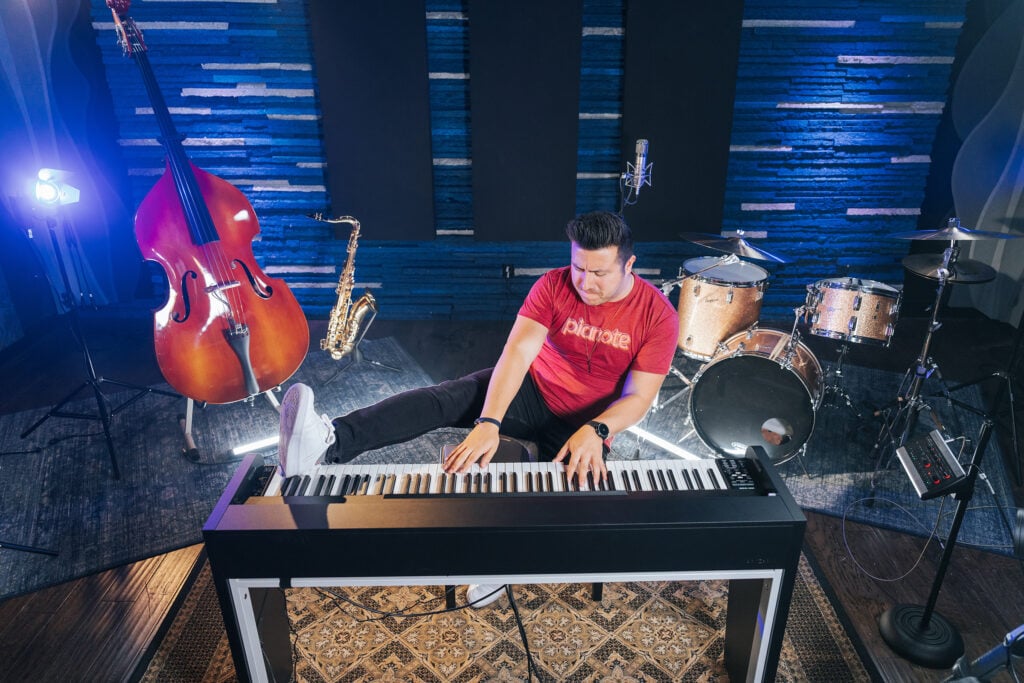
Let’s face it: most of us want to be really good at what we do. So, you’re probably curious about the practice habits of the pros.
Top classical pianists and top pop/rock pianists can be very different, so I thought it would be interesting to compare the two sub-groups.
Age of Learning: Most piano players in this group learned as children.
32%
of advanced and expert pop/rock pianists learned as adults.
22%
of advanced and expert classical pianists learned as adults.
Learning Method: The traditional method of learning with a private teacher is also more popular among this level of pianists.
60%
of advanced and expert pop/rock pianists learned with a private teacher.
80%
of advanced and expert classical pianists learned with a private teacher.
So, what if you want to get to this level but you started later in life and can’t access private lessons? Keep in mind that many of these musicians have been playing for a long time—20+ years in some cases! So, the majority of their learning may have happened when online tutorials and resources aimed at adults were scarce. If we repeat this survey in ten years, these numbers may change!
Years of Experience: Here’s how long advanced and expert pianists have been working on their craft…
Pop/Rock
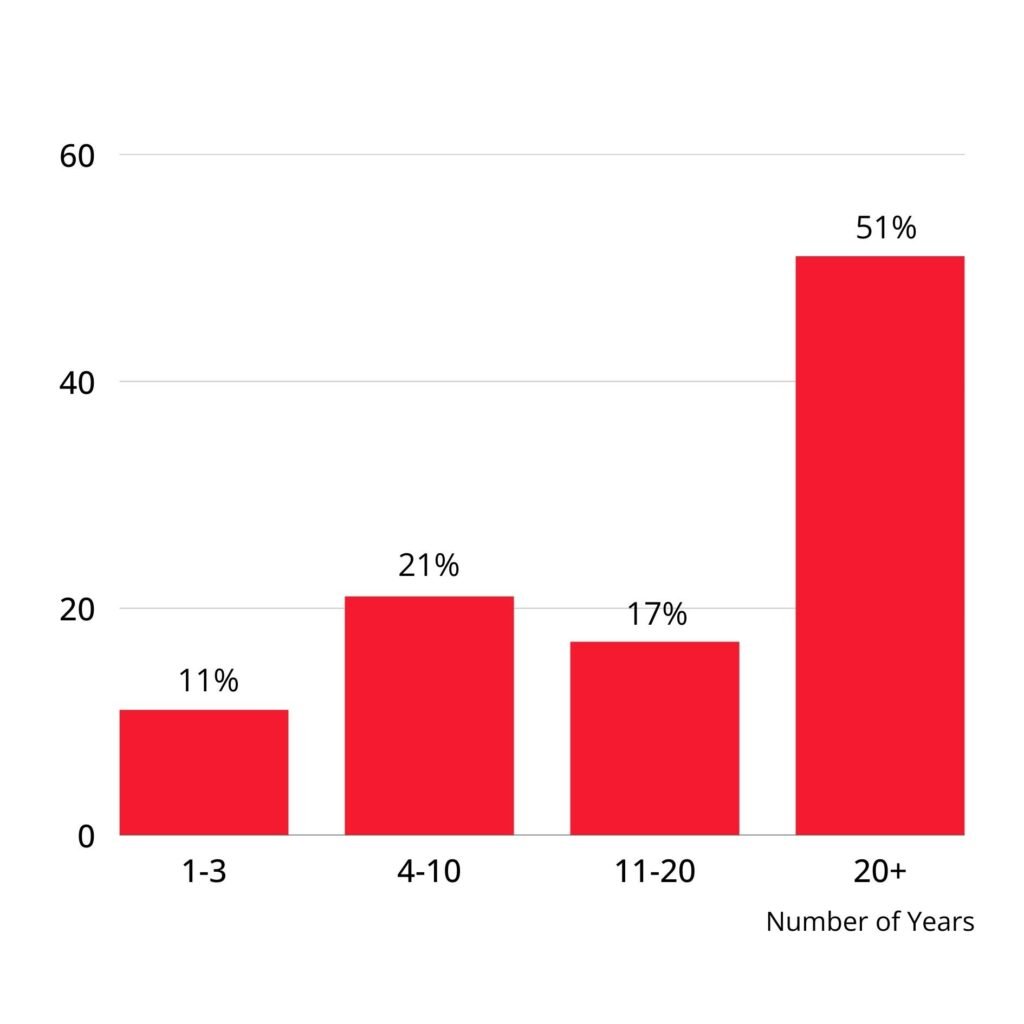
Classical
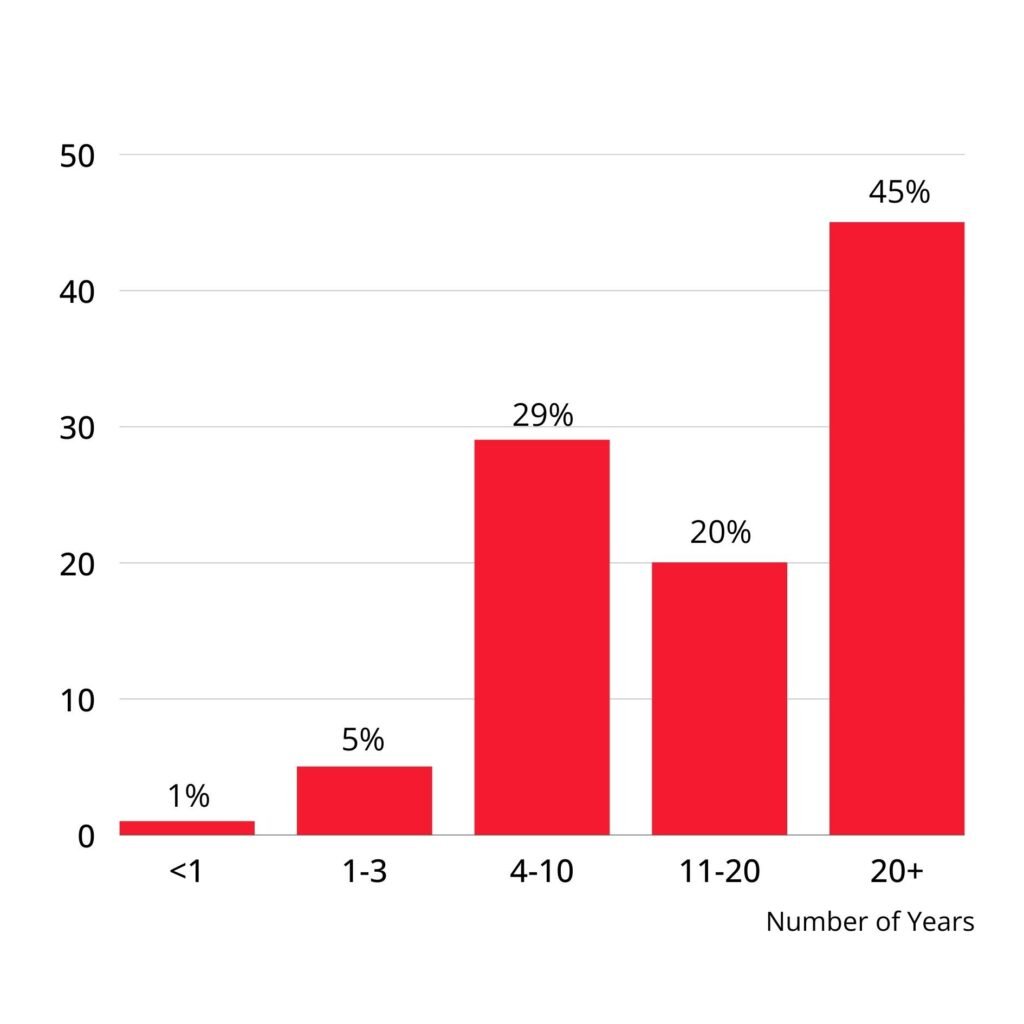
Practice Frequency: Most advanced and expert pianists practice most days of the week.
Pop/Rock
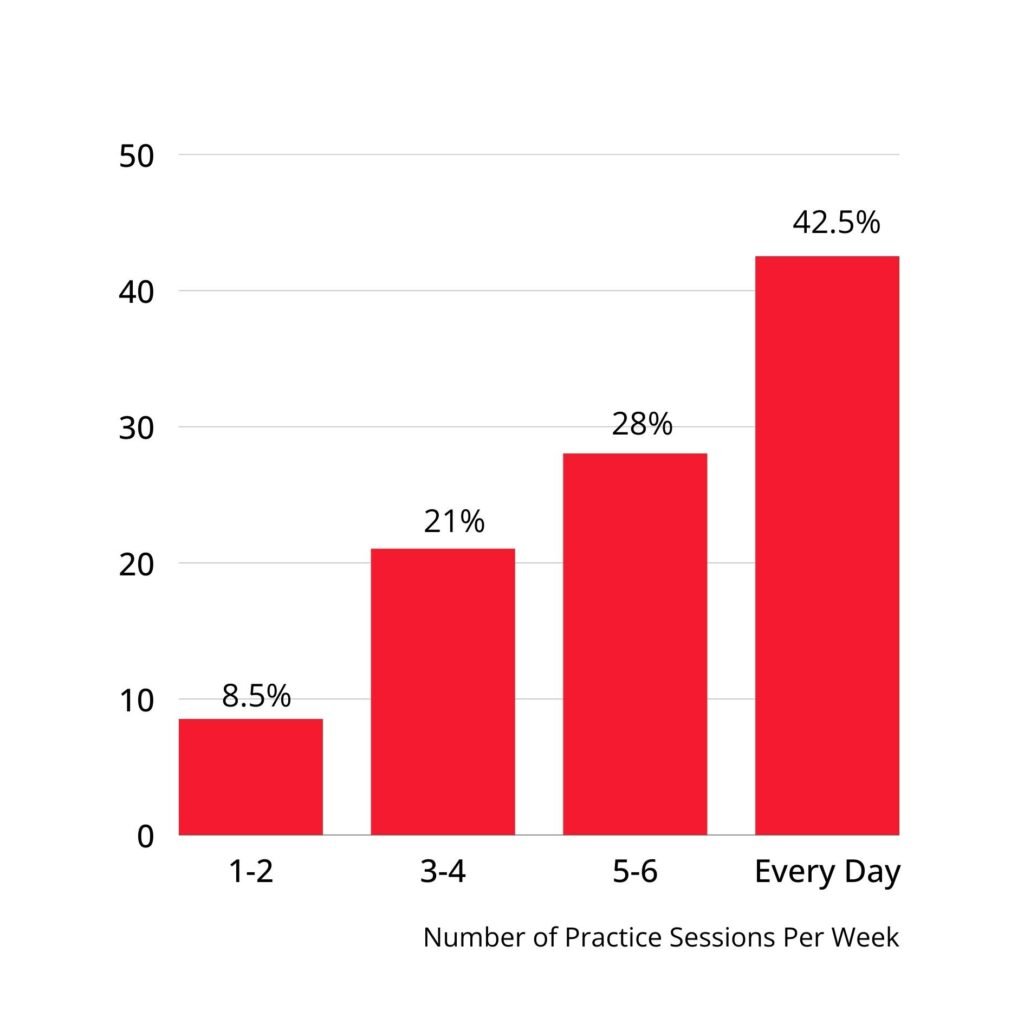
Classical
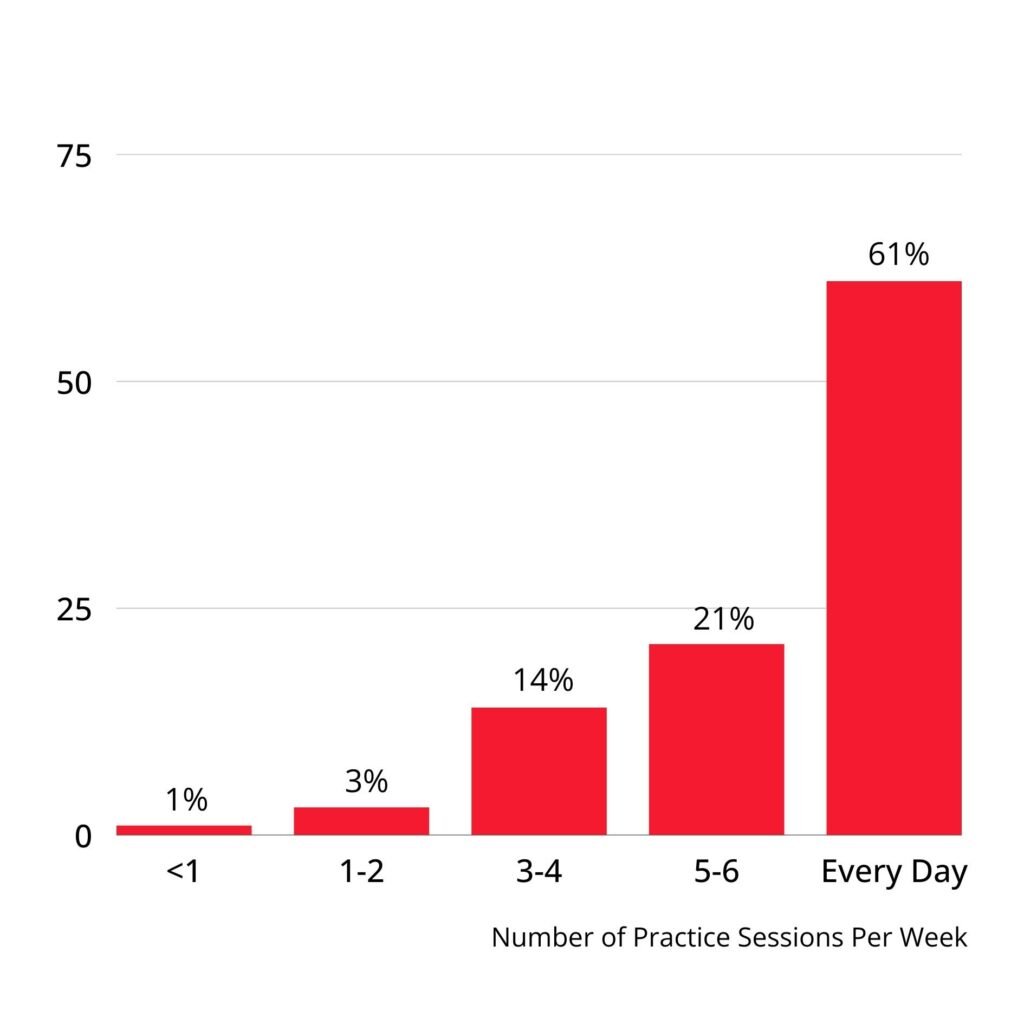
Practice Session Length: Top pianists might practice often, but they don’t practice for hours on end. 15-45 minute sessions and 45-90 minute sessions are most popular.
Of the advanced and expert pianists who practice every day or 5-6 times a week, 36% practice 45-90 minutes and 29% practice 15-45 minutes.
Pop/Rock
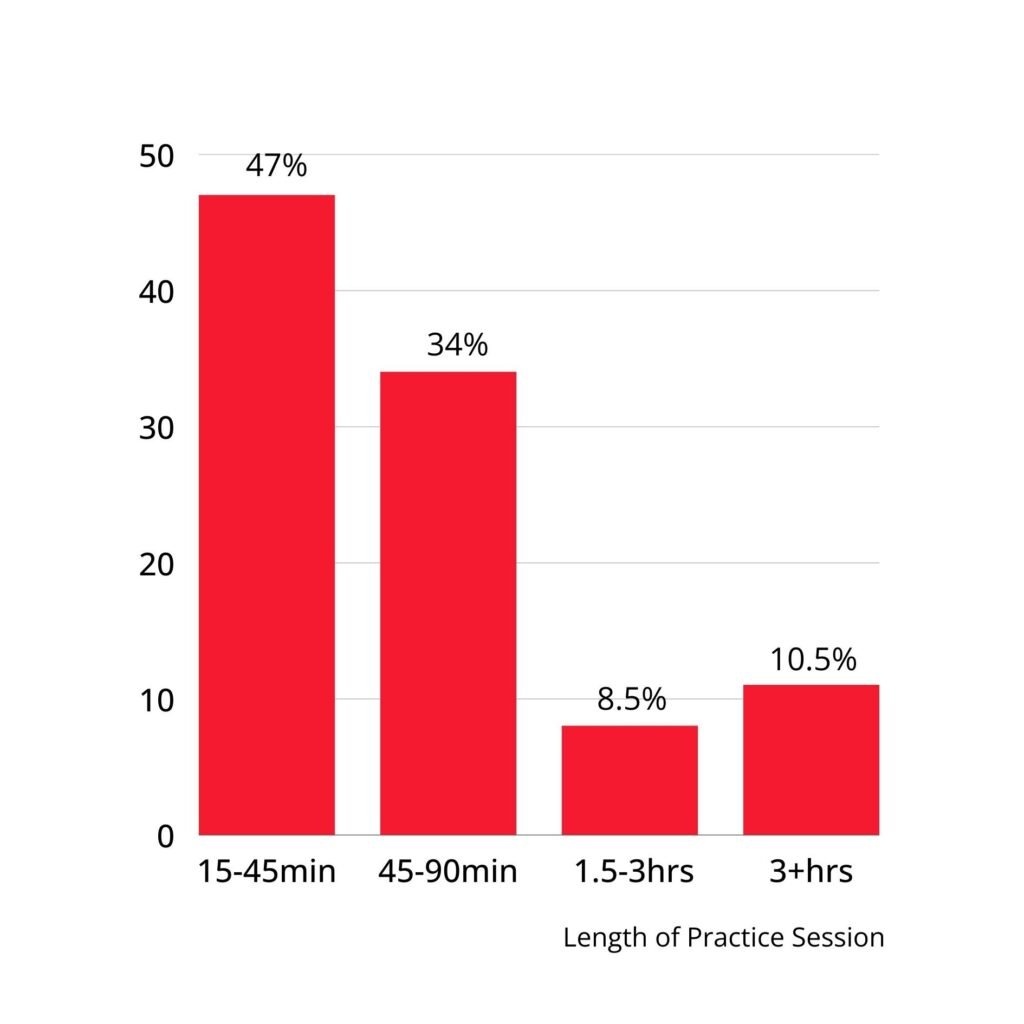
Classical
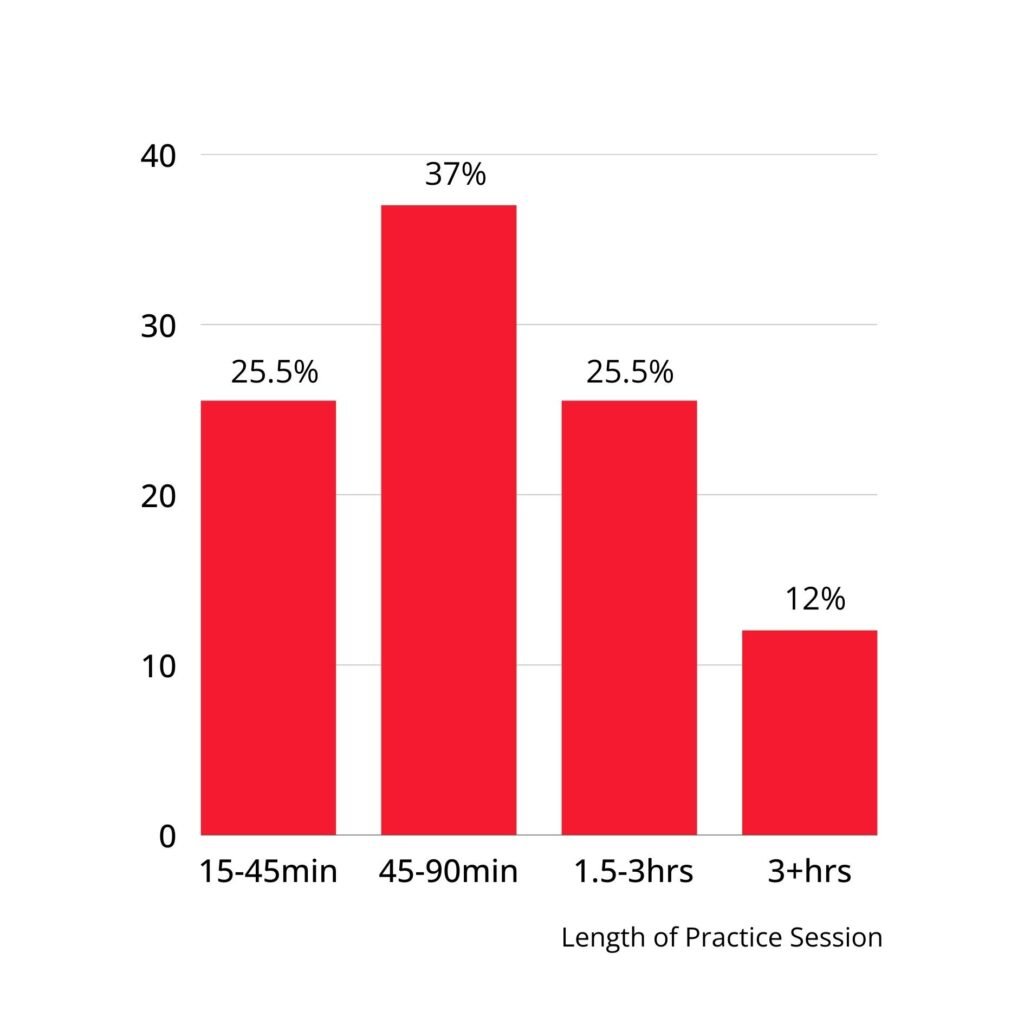
Music Experience: Here’s something interesting. Advanced and expert classical pianists are not likely to have played another musical instrument or another piano style. Top pianists in the pop and rock genres, however, are quite likely to play another instrument and another piano style. My guess is that pop and rock players began as classical players and then transitioned to another style.
Pop/Rock
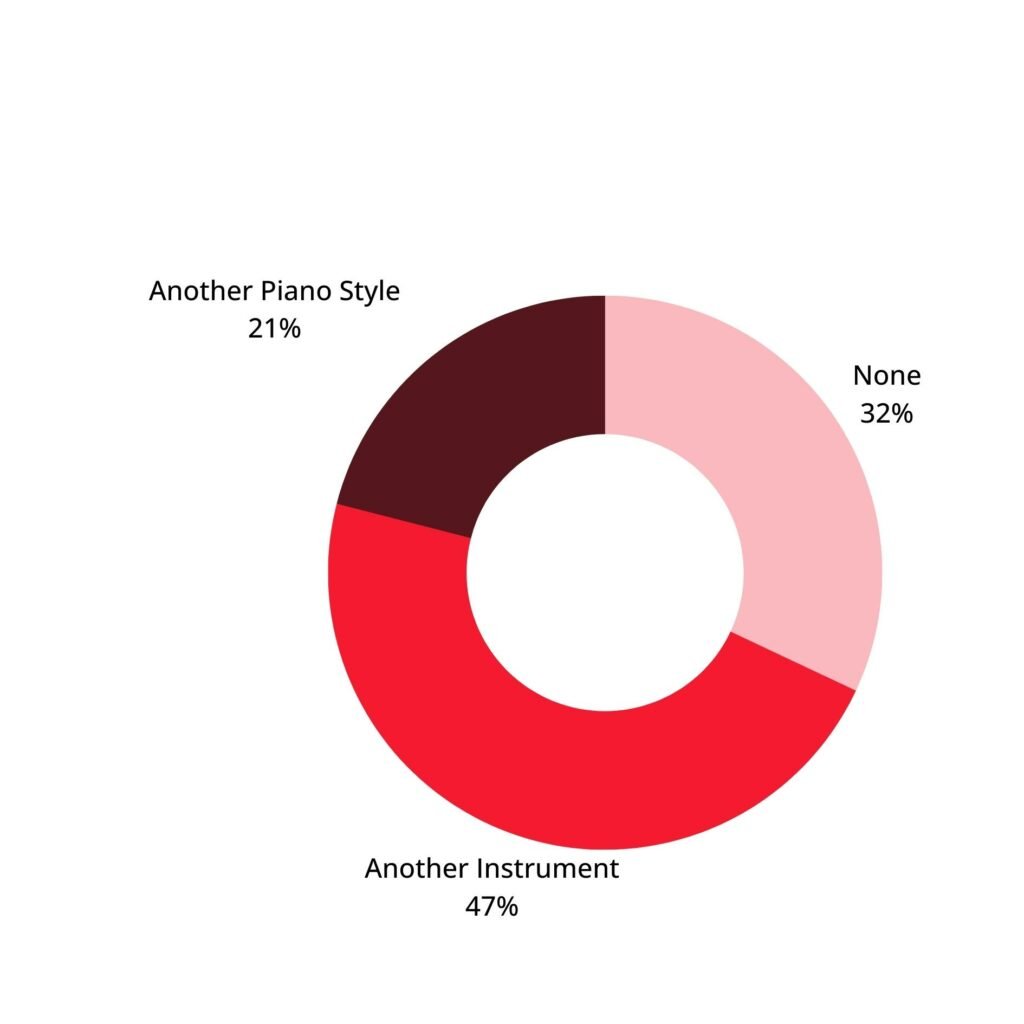
Classical
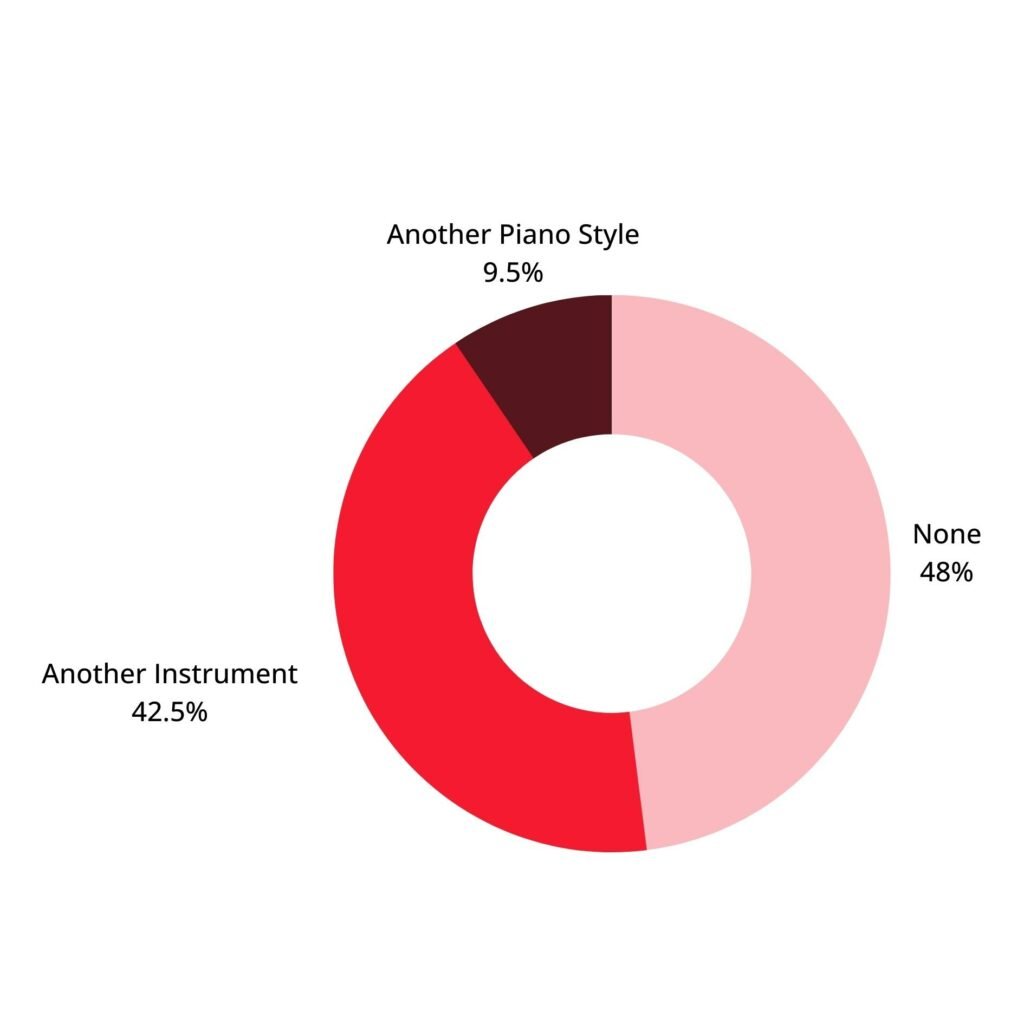
Practice Areas: Both advanced and expert classical and pop/rock pianists cite songs and technique as their most helpful practice areas. More pop/rock players (17%) find listening to music helpful than classical players (7%).
Pop/Rock
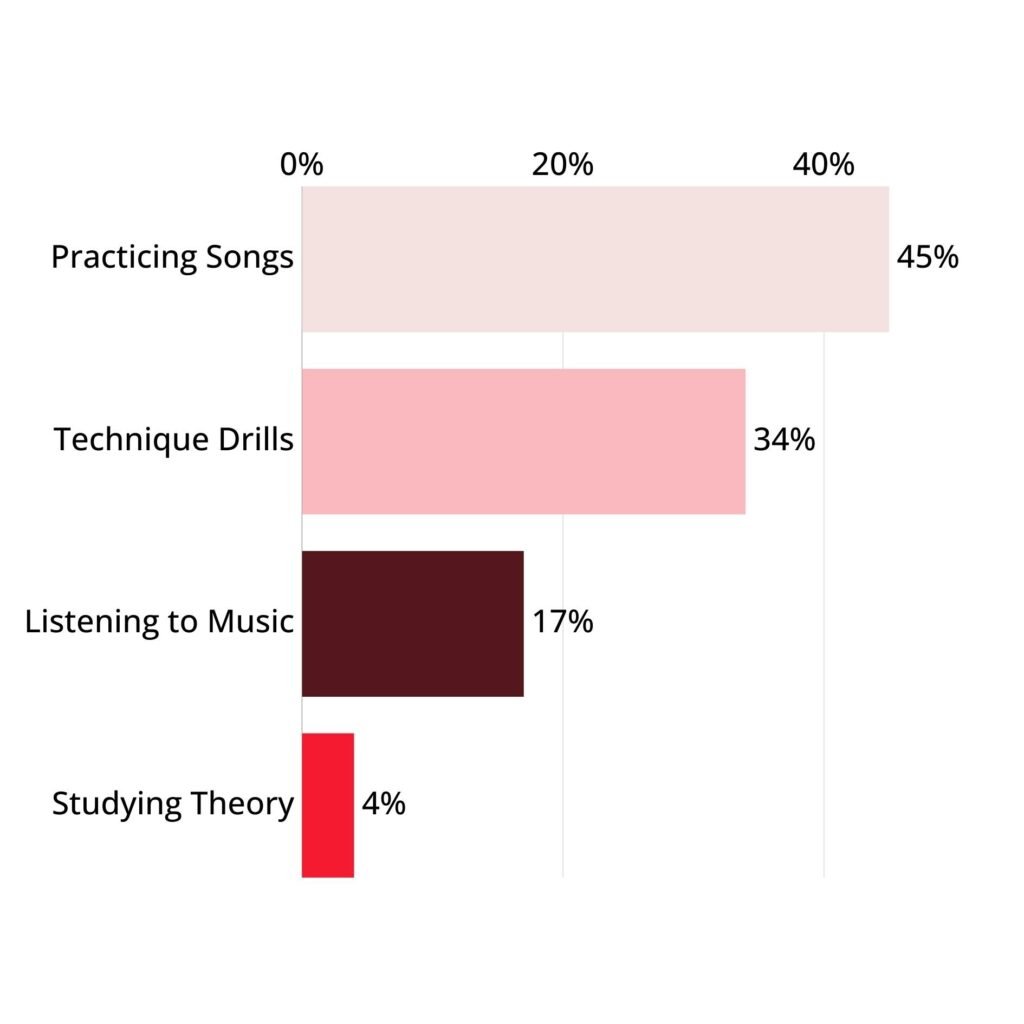
Classical
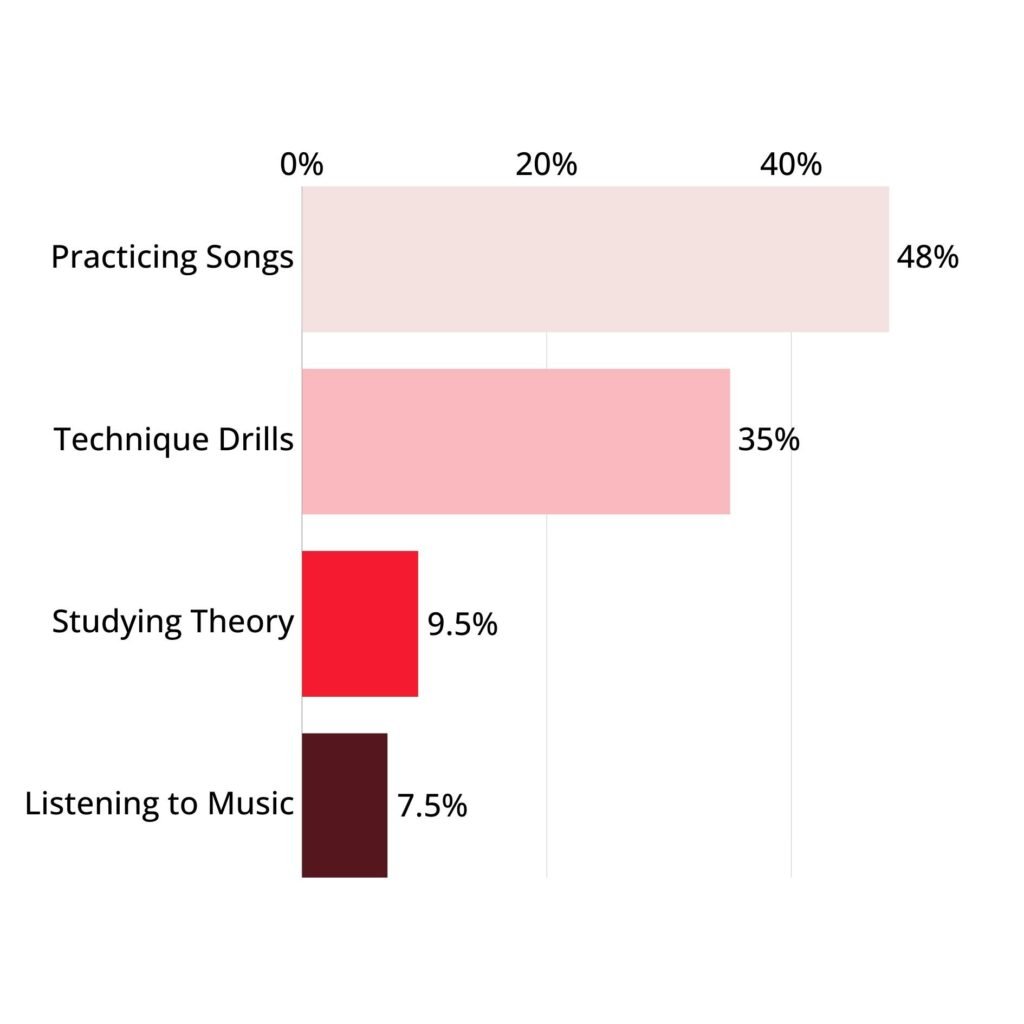
Pop/rock and classical piano players were more similar than I expected. Most have been playing piano for a decade or more. They practice most days of the week, but few practice more than three hours at once. Classical pianists recorded slightly longer practice sessions, while pop/rock pianists were more likely to have played another style of piano.
An overwhelming majority (70%) of expert pianists have been playing for 20+ years. So, it can take a very, very long time to become a high-level piano player. However, do note that our survey doesn’t take age into consideration, so some of these players may just be older.
Knowing that top piano players have been playing for decades may feel intimidating. But try to see piano as a lifelong journey with no definitive end point—there is always something new to learn!
87 jazz pianists responded to the survey. Here are some interesting facts about this little group:
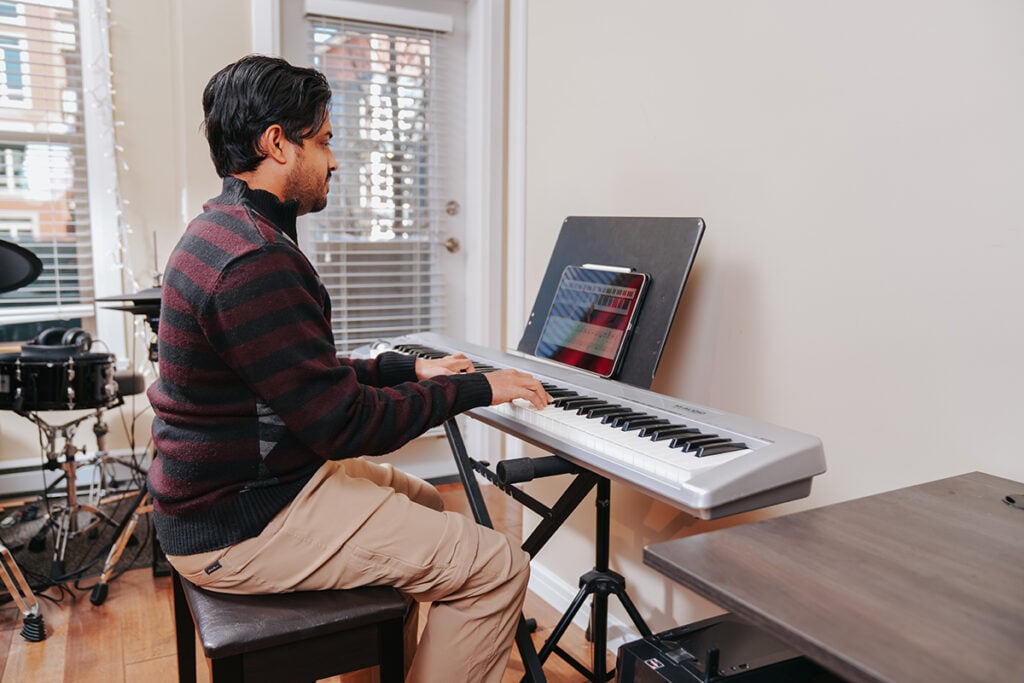
My guess is that a lot of people reading this article are novice piano players. Perhaps you’re a novice player who wants to know if they’re on the right track to progress to the next level. If you’re curious to see how your habits compare with other novice players, this data might give you some answers.
Age of Learning: Adult learners, you’re in good company!
82%
of novice piano players learned mainly as adults
18%
of novice piano players learned mainly as children
Learning Methods: Self-directed teaching at this level is very common, with nearly half (48%) of respondents saying they learned through online resources and books.
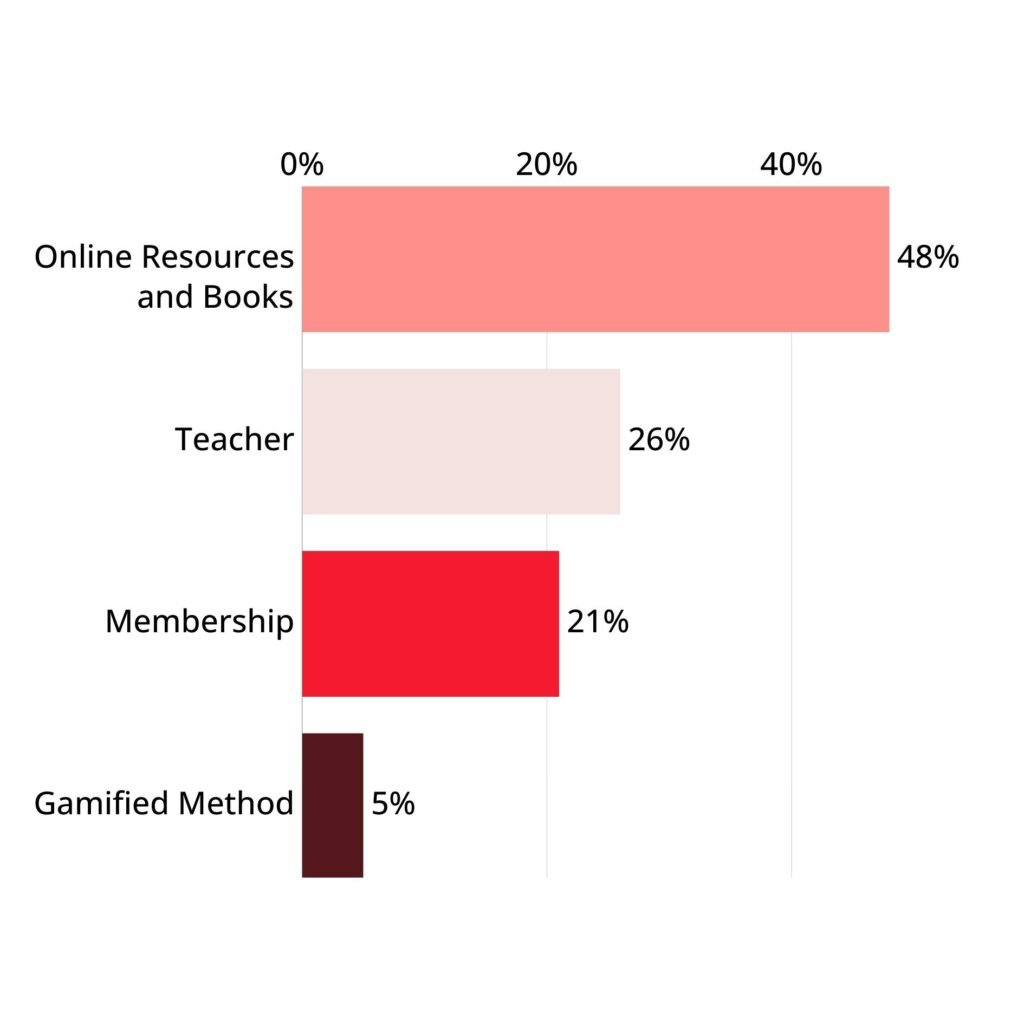
Years Played: Most novice pianists have been playing for less than 3 years.
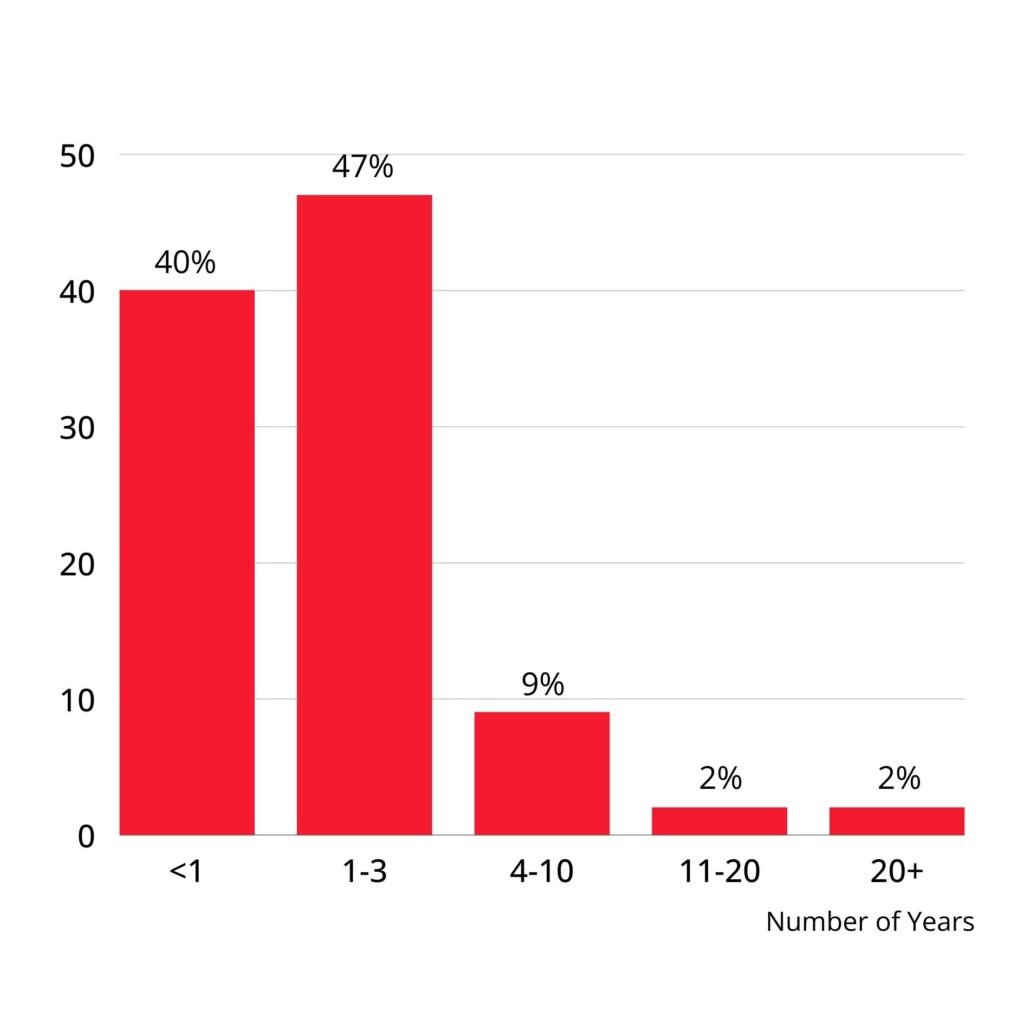
Music Experience: More than half of novice piano players have experience playing another instrument.
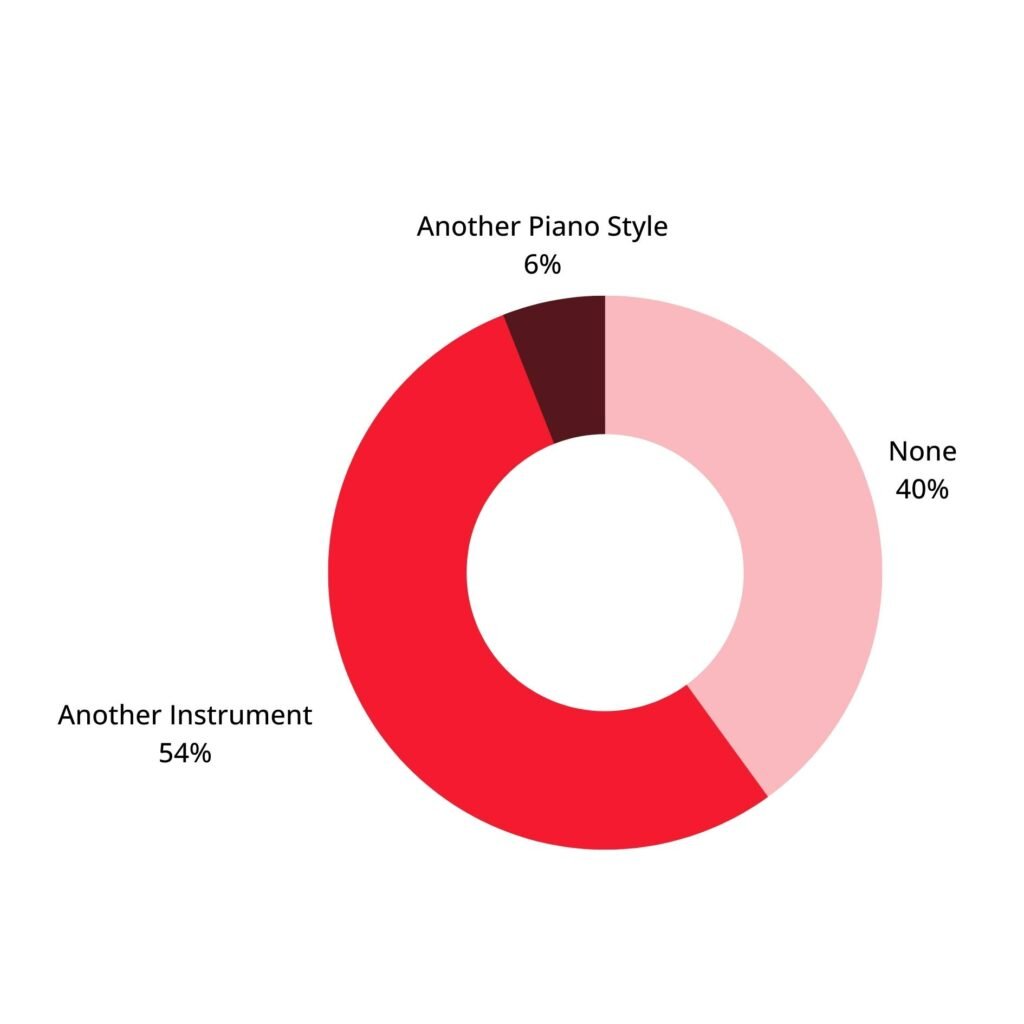
Practice Frequency: There’s a lot of variety here, but most novices practice most days of the week.
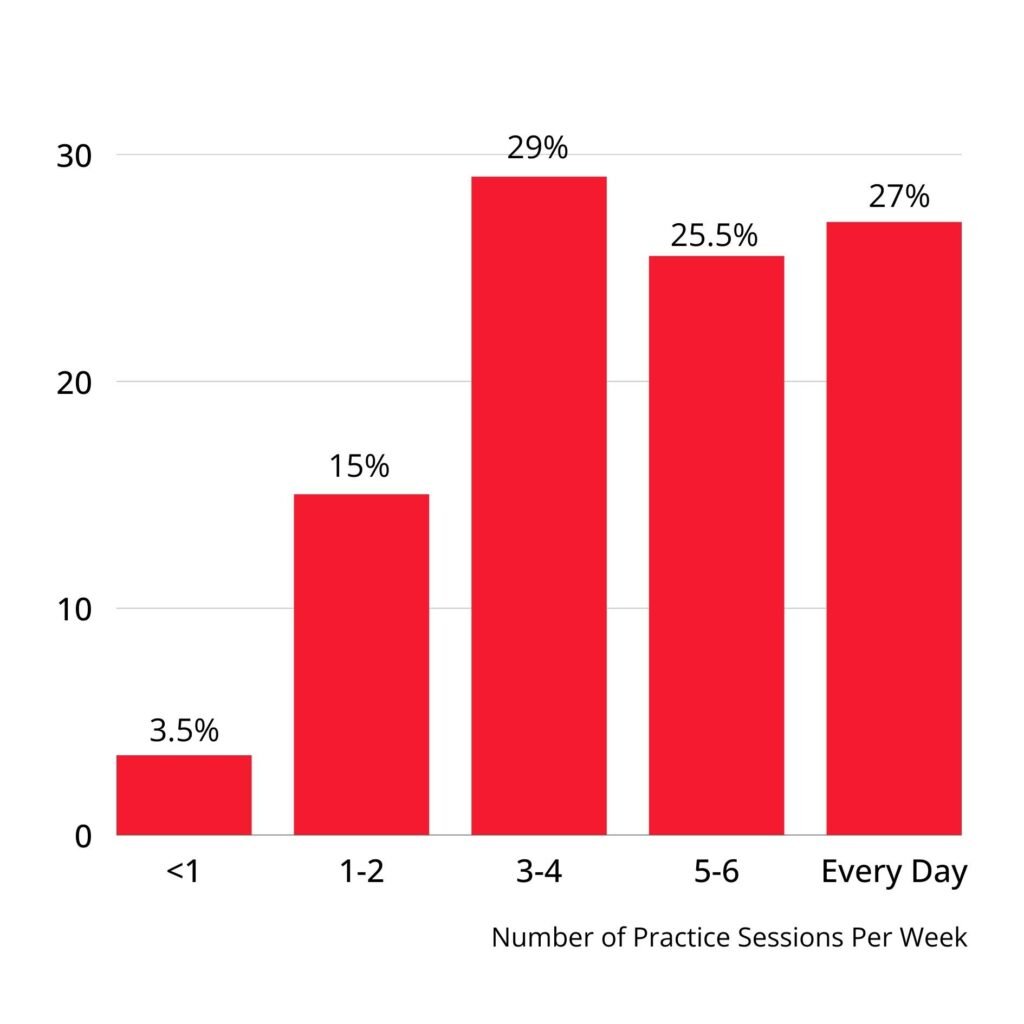
Practice Session Length: The vast majority of novice players practice 15-45 minutes per session.
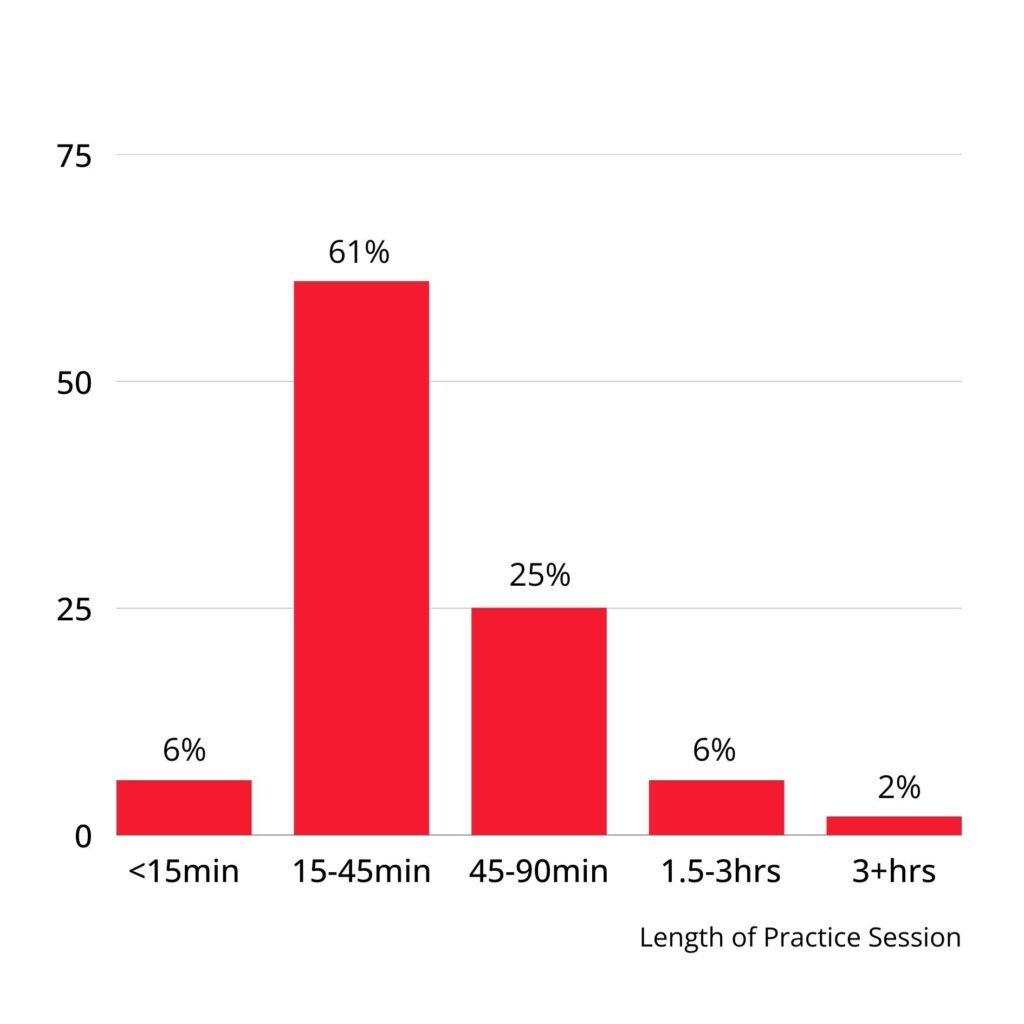
Practice Areas: Similar to piano players of other levels, songs and technique are voted as the most helpful practice areas.
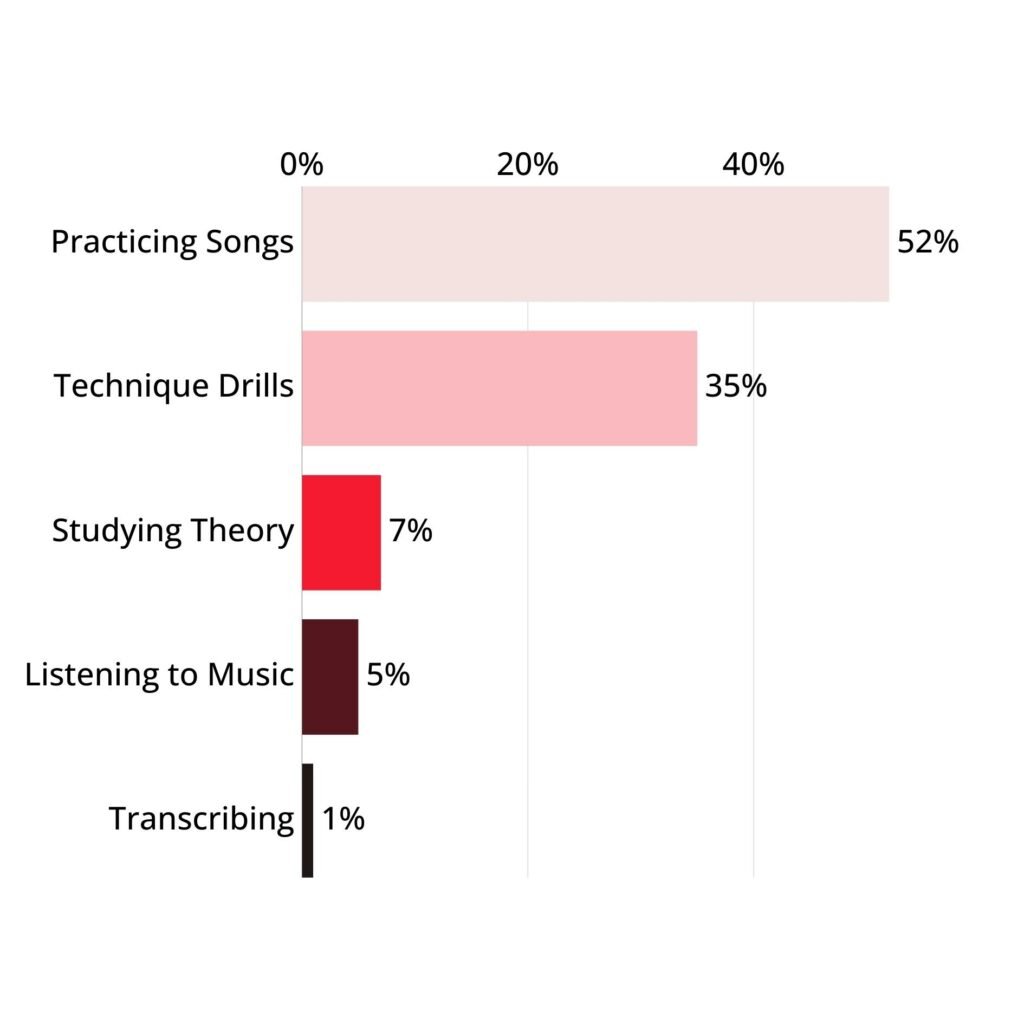
21st-century learning is popular among today’s novice players: nearly half of respondents use resources like books and online tutorials. It’s also interesting to see that many novices are adult learners. So, if you’re starting piano at a later stage in life, you are far from alone!
Practice frequency varies among novices, who may still be figuring out their rhythm. The vast majority of novices practice between 15 and 45 minutes a session. They practice most days out of the week, but there’s a wider range between those who practice a handful of times and those who practice every day.
How long does it take to learn piano? The answer, of course, is “it depends.” But I hope the results from this survey give you a better idea of what to expect on your piano playing journey.
Like any skill, piano takes time to master. There are no shortcuts, but the journey is part of the fun—if not the most fun part about learning piano!
As a piano teaching platform, we love illuminating the learning process. Here are more topics you may be curious about:
And if you want to get started on playing piano yourself, try Pianote for free.
The best way to learn piano is with real teachers, but not everyone has the time and money for a private instructor. At Pianote, you can get real feedback from real experts…all from the comfort of your own home. Explore our Method and community yourself with a free 7-day trial.
TRY PIANOTE FOR 7 DAYSCharmaine Li is a Vancouver writer who has played piano for over 20 years. She holds an Associate diploma (ARCT) from the Royal Conservatory of Music and loves writing about the ways in which music—and music learning—affects the human experience. Charmaine manages The Note. Learn more about Charmaine here.
/marketing/pianote/lead-gen/getting-started/coach.webp)
/marketing/pianote/lead-gen/getting-started/logo.webp)
By signing up you’ll also receive our ongoing free lessons and special offers. Don’t worry, we value your privacy and you can unsubscribe at any time.
We use cookies for traffic data and advertising. Cookie Policy »